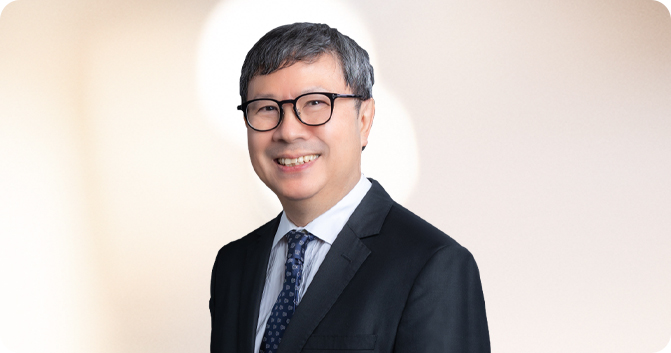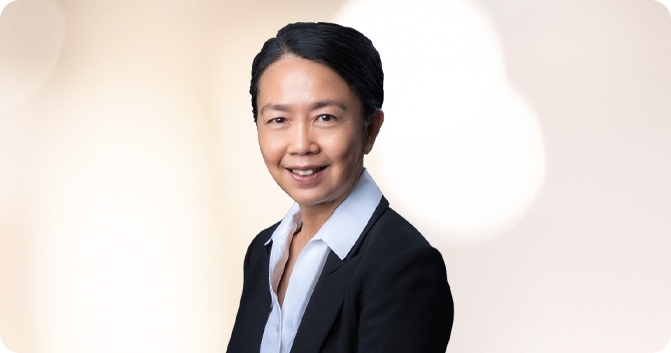Cataract Surgery in Singapore: Everything You Need to Know
Cataracts in Singapore
Cataracts are a common condition characterised by the clouding of the eye's natural lens, leading to blurred vision and other visual disturbances. In Singapore, cataracts predominantly affect older adults, particularly those aged 60 and above. Fortunately, cataract surgery is a safe and effective solution that can restore vision and quality of life. This guide will cover the causes, how cataracts are diagnosed, and available surgery options.
Primary Causes and Contributing Factors of Cataracts
Several key factors can influence the development of cataracts. Here are some of the primary causes and contributing factors:
- Ageing: The lens stiffens and proteins clump with age, causing cloudiness and vision decline.
- Diabetes: High blood sugar can damage the lens, accelerating cataract formation.
- Smoking: Chemicals from smoking harm the lens and increase cataract risk.
- UV Exposure: Prolonged UV light exposure can damage the lens over time.
- Family History: Genetics may increase the likelihood and early onset of cataracts.
- Eye Injury or Surgery: Trauma or surgery can disrupt the lens, leading to cataracts.
- Use of Steroids: Long-term steroid use may cloud the lens and impair vision.
How Cataracts Are Diagnosed
Cataracts are diagnosed through a comprehensive eye examination that includes several key tests to assess the clarity and health of the eye. Here are the primary methods used for diagnosis:
- Comprehensive Eye Exam: Involves reviewing medical history, checking vision sharpness, and measuring eye pressure. Pupil dilation allows a clear view of lens clouding and overall eye health.
- Slit-Lamp Examination: Uses a high-powered microscope and light beam to examine the eye’s front structures and detect lens clouding or deposits.
- Visual Acuity Test: Measures how well you see at various distances, typically with a Snellen chart. Vision below 20/40 may indicate a cataract.
- Retinal Exam: After dilation, the retina and optic nerve are checked to rule out other conditions before cataract treatment is considered.
What Is Cataract Surgery?
Cataract surgery is a procedure that removes the eye’s opaque lens and implants an artificial intraocular lens (IOL) to restore clarity of vision. The most common approach—phacoemulsification—uses ultrasound waves to break up the cloudy lens for gentle removal through a small incision.
This surgery is the only effective treatment for cataracts, which are a leading cause of reversible vision loss worldwide. With a high success rate, modern cataract surgery is a reliable solution that often allows patients to return to everyday activities within just a couple of days.
Signs You May Need Cataract Surgery
Cataract surgery is often considered when symptoms significantly impact daily life. Here are some signs that may indicate the need for cataract surgery:
- Blurred or Cloudy Vision
- Difficulty Seeing at Night
- Sensitivity to Light
- Discomfort in Bright Sunlight
- Double Vision in One Eye
- Seeing Halos Around Lights
When Is the Right Time for Cataract Surgery?
Cataract surgery is typically recommended when lens clouding begins to interfere with daily life—affecting work, hobbies, social interactions, or safety. Symptoms like blurred vision, glare, difficulty reading labels or driving at night can signal it is time to consider surgical options. If vision problems pose a risk to your well-being or independence, timely surgery becomes essential. The decision should always be made in consultation with your ophthalmologist, who can assess the severity of your cataracts and guide you on the best timing for optimal visual results.
Benefits of Cataract Surgery
Cataract surgery offers numerous benefits that can significantly enhance one's quality of life. Here are some of the key advantages:
- Clearer Vision: Replaces the cloudy lens with an artificial one, reducing blur and glare.
- Better Quality of Life: Restores confidence in activities like reading, driving, and socialising.
- Long-Lasting Results: Offers a permanent solution with a high success rate.
- Brighter Colours: Restores vivid colour perception dulled by cataracts.
- Corrects Other Issues: Advanced lenses can address astigmatism or presbyopia, reducing reliance on glasses.
Types of Cataract Surgery
Cataract surgery can be categorised into several types, each with its own advantages and techniques. The main types include:
Traditional Cataract Surgery
The standard approach to cataract surgery is phacoemulsification. This technique involves making a small, approximately 3 mm incision in the cornea. A specialised probe is then inserted, using ultrasound to break the cataract into small fragments that are carefully removed by suction.
The cataract procedure relies on the manual precision of a skilled surgeon to perform the incisions and lens fragmentation, which can lead to slight variability in outcomes.
Laser-Assisted Cataract Surgery
Laser-assisted cataract surgery, often using femtosecond lasers, offers enhanced precision and safety compared to traditional methods. This technique uses a femtosecond laser to create precise incisions and soften the cataract, making it easier to remove. The laser creates incisions and breaks down the cataract into smaller pieces. The softened lens is then removed using phacoemulsification, and an IOL is implanted.
Compared to traditional cataract surgery, laser-assisted surgery provides greater precision and reduces the risk of human error, as it uses computer-guided technology to create customised incisions.
Other Surgical Techniques for Cataract Removal
Extracapsular Cataract Extraction (ECCE)
: This older method involves making a larger incision to remove the lens in one piece. It is less common today due to longer recovery times and higher risks of complications.Manual Small Incision Cataract Surgery (MSICS)
: MSICS is an evolution of ECCE, using a smaller incision that self-seals without sutures. It is cost-effective and widely used in developing countries.
What to Expect After Cataract Surgery
After cataract surgery, you can expect some mild soreness and blurry or changing vision as your eye heals. Most discomfort improves within a few days, but full recovery may take 4–6 weeks.
Your immediate aftercare will include wearing a protective shield, using antibiotic and anti-inflammatory eye drops, and attending scheduled follow-up visits in the days and weeks after surgery. During this period, you should avoid driving (until cleared by your doctor), heavy lifting, swimming, and other strenuous activities to protect your healing eye.
Proper post-surgery care, such as gentle cleaning, wearing sunglasses outdoors, and using over-the-counter pain relief, can help ensure a smooth recovery and the best possible visual outcome.
Possible Complications of Cataract Surgery
While cataract surgery is generally safe and effective, potential complications can occur. Understanding these risks is important for managing expectations and ensuring proper care post-surgery.
Here are some of the possible complications:
- Infection
- Bleeding
- Swelling
- Retinal Detachment
- Glaucoma
- Vision Loss
Why Choose Our Team of Cataract Surgeons?
At ERS Cataract Centre, we are committed to providing personalised care for cataract surgery patients. Here are several ways our cataract surgeons support your treatment journey:
- Advanced Technology and Equipment: We use the latest techniques in cataract surgery, including femtosecond laser-assisted procedures, to improve precision and safety.
- Skilled and Experienced Surgeons: Our surgeons have extensive experience managing a wide range of cataract cases, including more complex conditions.
- High Success Rates and Safety Standards: We maintain high success rates and adhere to stringent safety standards, ensuring our patients receive the best possible outcomes.
- Affordable & Accessible: We aim to keep quality cataract care within reach, with financing options available to help patients manage the costs of their care.
- Quality Healthcare: From your first consultation to your final follow-up, our team ensures a smooth and supported experience.
If you are considering cataract surgery, contact us for a personalised consultation. Our team is here to guide you through your options and help restore clear vision with safe, effective treatment.
FAQs About Cataract Surgery
What is the cost of cataract surgery in Singapore?
The cost of cataract surgery in Singapore ranges from SGD 3,000 to SGD 12,000 or more per eye. This is based on factors like surgery type (laser-assisted or traditional), surgeon expertise, IOL choice, clinic setting, technology used, and pre- and post-operative care.
Is cataract surgery covered by insurance?
In Singapore, insurance often covers cataract surgery, especially when deemed medically necessary. However, coverage details vary by provider, so checking with your insurer is essential.
Is surgery the only treatment for cataracts?
Yes, surgery is currently the only effective treatment for cataracts. It involves removing and replacing the cloudy lens with an artificial intraocular lens (IOL).
How do I prepare for cataract surgery?
Preparation for cataract surgery includes a comprehensive consultation, eye screening tests, and preoperative instructions. You may need to stop taking certain medications, fast before surgery, and avoid wearing contact lenses for a while.
Do I need follow-up care after cataract surgery?
Yes, follow-up care is essential after cataract surgery. You must attend post-operative appointments to monitor healing and address any complications. Additionally, you may need to use prescribed eye drops to prevent infection and inflammation.
Can cataracts recur after surgery?
No, cataracts cannot recur after surgery since the artificial lens cannot develop a cataract. However, some patients may experience posterior capsular opacification, a condition where the lens capsule becomes cloudy, which can be treated with a laser procedure.
Our Cataract Surgeons
At ERS Cataract Centre, our team of cataract surgeons is dedicated to providing the highest quality care for patients.

Dr Ronald Yeoh Lam Soon
Dr Yeoh is the Medical Director at ERS Cataract Centre and a senior consultant ophthalmic surgeon. He specialises in cataract and retinal diseases and helped pioneer small incision cataract surgery (phaco) in Singapore and the Asia Pacific. A dedicated educator, Dr Yeoh has been recognised for his contributions to the field of ophthalmology.

Professor Chee Soon-Phaik
Prof Chee is a senior consultant ophthalmologist with over 30 years of experience. She specialises in cataract and uveitis treatment, with extensive expertise in managing complex cataracts. She has authored more than 300 peer-reviewed papers, and her research includes femtosecond laser-assisted cataract surgery. Prof Chee is known for inventing surgical instruments to manage complex cataract surgeries.

Dr Anna Tan Wee Tien
Dr Tan is a senior consultant ophthalmologist with subspecialties in corneal and refractive surgery. She is well-versed in femtosecond laser-assisted cataract surgery and has extensive experience managing various eye conditions. Dr Tan has previously served as the Head of Cornea and External Eye Diseases at the National University Hospital (NUH) and has received awards for her teaching excellence.

Dr Yeo Tun Kuan
Dr Yeo Tun Kuan is a senior consultant ophthalmologist with a focus on complex cataract and anterior segment surgery. He has performed over 6,000 cataract procedures, including femtosecond laser-assisted techniques. As the former Head of Cataract Services at Tan Tock Seng Hospital, Dr Yeo brings extensive experience in both clinical care and surgical excellence.

